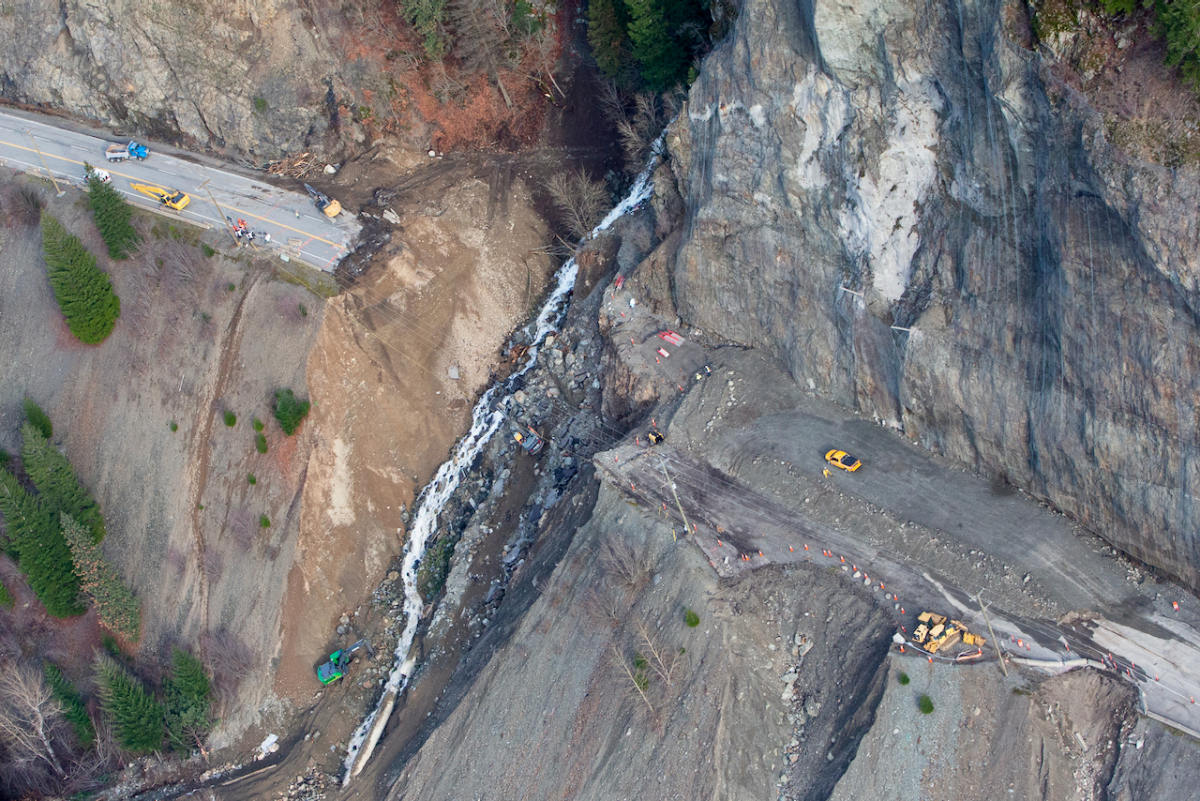Communities prepare for climate-driven extreme weather

The B.C. government is helping a handful of communities pay for the planning and infrastructure they need to brace for climate disasters.
From wildfires to flooding, climate-driven extreme weather puts people in danger and has damaged infrastructure across Canada. This month, Emergency Preparedness Minister Bowinn Ma announced the province will spend about $5 million to help several communities adapt to and prepare for extreme weather events like flooding and landslides.
The new funding comes from the province’s Community Emergency Preparedness Fund, which it uses to help communities prepare for disasters and climate-related emergencies. Communities receiving grants this November include the town of Golden and the cities of Rossland and Richmond.
The City of Merritt, a three-hour drive northeast of Vancouver, is receiving more than $2 million to build a 200-metre dike to mitigate flooding and study how extreme rainfall will put the city at risk. The funding comes nearly two years after a series of atmospheric rivers flooded the city and put about 7,000 people out of their homes.
Five hundred kilometres north of Vancouver, the Regional District of Fraser-Fort George is receiving more than $1 million to study how flooding and landslides might put residents at risk.
“We were really pleased to receive the funding,” chair of the regional district Lara Beckett said. “It’s going to just give us a whole lot more information about what the potential risks [of flooding] are.”
Extreme weather is becoming more dangerous and frequent as human-caused climate change creates conditions for heavy rainfall, storms and drought.
“British Columbians are concerned about the increasing effects of climate change and the emergencies we’re already experiencing — like drought, flooding, extreme heat and wildfires,” Ma said in a press release. “By funding local, on-the-ground projects, our government is helping First Nations and local governments protect their communities and keep people safer from future emergencies.”
Climate-driven extreme weather events are also costly. According to the Insurance Bureau of Canada, the floods that washed over the province in November 2021 caused about $515 million in damage to insured infrastructure and buildings. Last year, extreme weather cost Canada more than $3 billion in insured loss.
Beckett said studying the risks of extreme weather and building infrastructure to prepare for these events would make her community safer and repairs less costly.
“There's the old adage: an ounce of prevention is worth a pound of cure,” Beckett said. “If we have the knowledge and can prepare for potential impacts in the future, it's just going to prevent more extreme damage.”
Beckett said she hopes the funding can help other communities mitigate the damage from climate-driven extreme weather events.
“We see the damage from some of these climate events in our communities and in other communities,” Beckett said. “Planning for disasters should have started probably yesterday — the best time is right now.”
The province will be accepting applications for projects that reduce damage from climate-driven weather events until March.






Comments
I wish they would be more serious about reducing the greenhouse gas emissions instead of putting on band-aids.